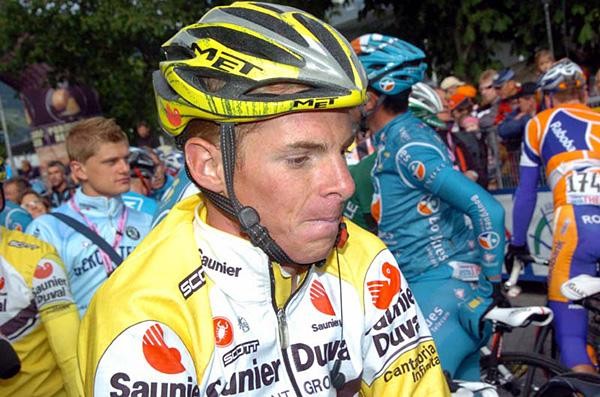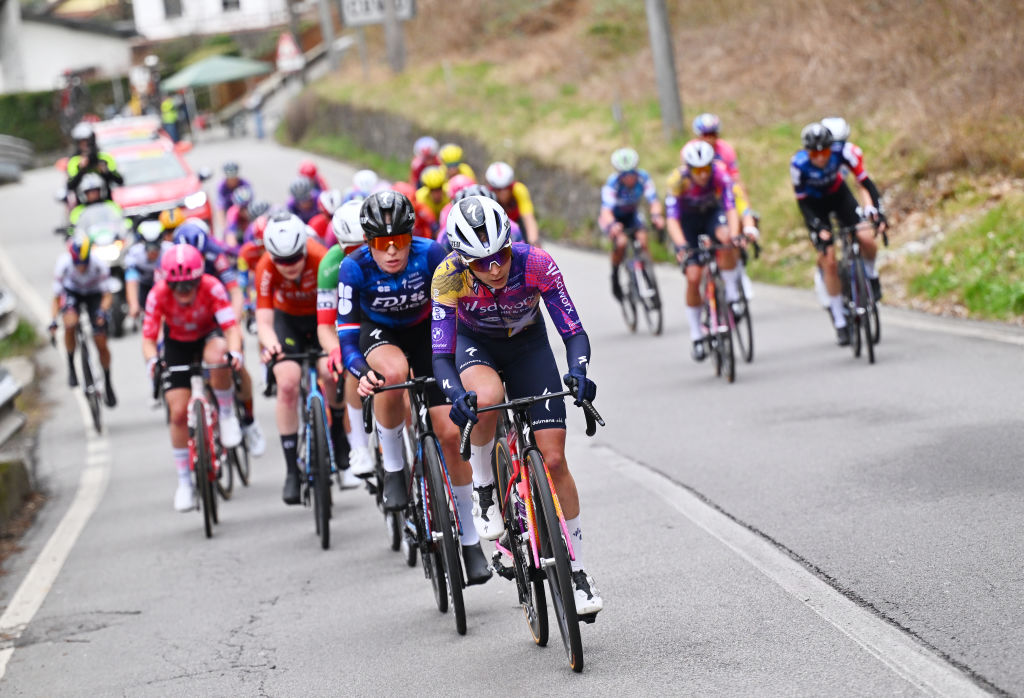Riders flock to sign UCI charter as Tour nears
The stream of riders rushing to sign the UCI's new anti-doping charter continues to flow with the...
The latest race content, interviews, features, reviews and expert buying guides, direct to your inbox!
You are now subscribed
Your newsletter sign-up was successful

The stream of riders rushing to sign the UCI's new anti-doping charter continues to flow with the addition of Riccardo Riccò (Saunier Duval), and Rubén Plaza (Caisse d'Epargne) to the list. The pair are the latest individuals to sign the charter, in which riders pledge to pay a full year's salary and serve a two year suspension if found to have doped, while T-Mobile has become the latest of the 21 ProTour teams to have its entire roster sign the charter.
"I think it is a step in the right direction," declared T-Mobile's Linus Gerdemann. "What the cycling world needs is to have more trust. At the T-Mobile Team we stand for anti-doping, so there was never any doubt that we would all sign it." T-Mobile youngster Mark Cavendish, along with Française des Jeux's Sandy Casar, were the first riders to sign the agreement at its unveiling in Switzerland last week.
Saunier Duval announced overnight in a brief statement to the media that Ricco had joined his Italian teammate Gilberto Simoni to become the squad's second rider to sign the agreement. Meanwhile Plaza, who was implicated by Spanish authorities in the Operación Puerto investigation, is the first from Spain's Caisse d'Epargne team to sign the agreement. In doing so, Plaza, like all other signatories, has pledged a DNA sample to the Spanish authorities for cross referencing with Puerto evidence, with the agreement stating: "I declare to the Spanish Law, that my DNA is at its disposal, so that it can be compared with the blood samples seized in the Puerto affair. I appeal to the Spanish Law to organize this tests as soon as possible or allow the UCI to organize it."
Despite the rush by some squads to have its riders sign the agreement, some teams, including Quickstep-Innergetic, Rabobank, Astana and Lampre-Fondital to name a few, are yet to have any riders sign the agreement. That, however, is expected to change over the coming days, with each squad's nine Tour de France riders required to have inked the charter in order to contest the event.
"We will oppose the presence at the start of the Tour of any rider who will not have signed the International Cycling Union's anti-doping charter," outlined Tour de France director Christian Prudhomme to The Guardian.
While French teams Crédit Agricole and Agritubel, like T-Mobile, have had their full rosters sign the agreement, Cofidis and Bouygues Telecom have only had their nine Tour riders sign the agreement to date. Despite the fact that the UCI cannot legally force riders to sign its new charter, the amount of athletes to sign shows the political and peer pressure, in the form of publishing the list online, has paid dividends for the sport's governing body.
The latest race content, interviews, features, reviews and expert buying guides, direct to your inbox!
